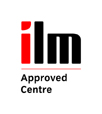Buying an Existing Business
If you are thinking about running your own business, buying a company that is already established may be a lot less work than starting up on your own. You will, however, need to put the effort into finding a business that is right for you.
Buying an existing business can benefit you in many ways. You do have to be aware that you will be taking on the legacy of the previous business owner and you need to be aware of every aspect of the business before committing to a purchase.
Advantages
• Some of the ground work will already have been done in getting the business up and running.
• It may be easier for you to get finance as the business will have a proven track record.
• A market for the product or service will have already been demonstrated.
• There may be established customers, a reliable income, a reputation to capitalise and build on, and a useful network of contacts.
• A business plan and marketing method should already be in place.
• Existing employees should have experience you can draw on.
• Many of the problems will have been discovered and solved already.
Disadvantages
• You often need to invest a large amount up front, and will also have to budget for professional fees for solicitors, surveyors, accountants etc.
• If the business has been neglected you may need to invest quite a bit more on top of the purchase price to give it the best chance of success.
• You will need to honour or renegotiate any outstanding contracts the previous owner leaves in place.
• You also need to consider why the current business’ owner is selling up - it may have a negative impact on you should you choose to buy the business being sold.
• Think about the feelings of current staff - it’s possible they may not be happy with a new boss, or the business might have been run badly and staff morale may be low.
Finding the Right Business for You
Ideally your business needs to fit your own skills, lifestyle and aspirations. Before you start looking, think about what you can bring to a business and what you would like to get back.
List what is important to you. It is useful to consider:
• Your expectations in terms of earning - what level of profit do you need to be looking for to accommodate your needs?
• Your commitment - are you prepared for all the hard work and money that you will need to put into the business to get it to succeed?
• Your strengths - what kind of business opportunity will give you the chance to put your skills and experience to good use?
• The type of business - limited company, partnership etc - that you are interested in buying.
• The business sector you are interested in - learn as much as you can about your chosen industry so you can compare different businesses. It is important to take the time to talk to people already in similar businesses.
• Location - don’t restrict your search to your local area. Some businesses can be easily relocated.
Where to Look
Many national and local newspapers carry adverts for businesses and business premises for sale. Trade journals can be a valuable industry-specific source of information and you can even advertise your intent to buy in such a journal. You can get contact details for most newspapers, magazines and trade journals from press directories available at your local library. In addition, some magazines - many of them with their own websites - specialise in buying and selling, like Exchange and Mart, Loot and Daltons Business.
Other websites also offer databases of business transfer agents. These act in a similar way to estate agents - they are experts in valuing, marketing and selling businesses. They can help you find the right business and can also put you in touch with possible sources of finance.
When looking for a transfer agent ensure they are members of the National Association of Estate Agents (NAEA). NAEA members are subject to a code of conduct and membership demonstrates that they possess the necessary professional skills, knowledge and experience.
Don’t forget word of mouth. Ask around among trade contacts, business associates, and at exhibitions and conferences.
Valuing a Business
Valuing a business can be one of the most difficult parts of buying an existing business.
There are several valuation methods you can use. For specific advice on valuation methods see our guide on how to value and market your business. Your accountant can also help you value the business.
To get a general idea of how healthy the business is, look at:
• The history of the business
• Its current performance - sales, turnover, profit
• Its financial situation – cash flow, debts, expenses, assets
• Why is the business being sold
As part of your investigations, talk to the vendor and the businesses existing customers and suppliers. They may be able to give you information that affects your valuation.
For example, if the vendor is being forced to sell due to decreasing profits, your valuation will be lower. They may also be able to give you general market information about conditions affecting the business.
The most difficult part is valuing the intangible assets. These are usually difficult to measure and could include:
• The company’s reputation
• The relationship with suppliers
• The value of goodwill
• The value of licences
• Patents or intellectual property
You should consider how the value of these assets could be affected if you decide to buy the business.
The list below details other factors that will affect the value:
• Stock
• Assets
• Products
• Debtors
• Creditors
• Suppliers
• Employees
• Premises
• Competition
Once you have considered all these factors you can then decide how much you want to offer, or whether you want to buy it at all.
If you do decide to make an offer, and agree a price with the seller, a period of time is allowed for you to verify that all of the information you have been told is accurate. This is known as due diligence.
By Expert Adviser, Dean Shepherd, www.mmi-online.com
Copyright © 2005 MMI
Our business coaches are here to help. Find out more about our business coaching services or email us at [email protected] to arrange a chat with one of our coaches.





